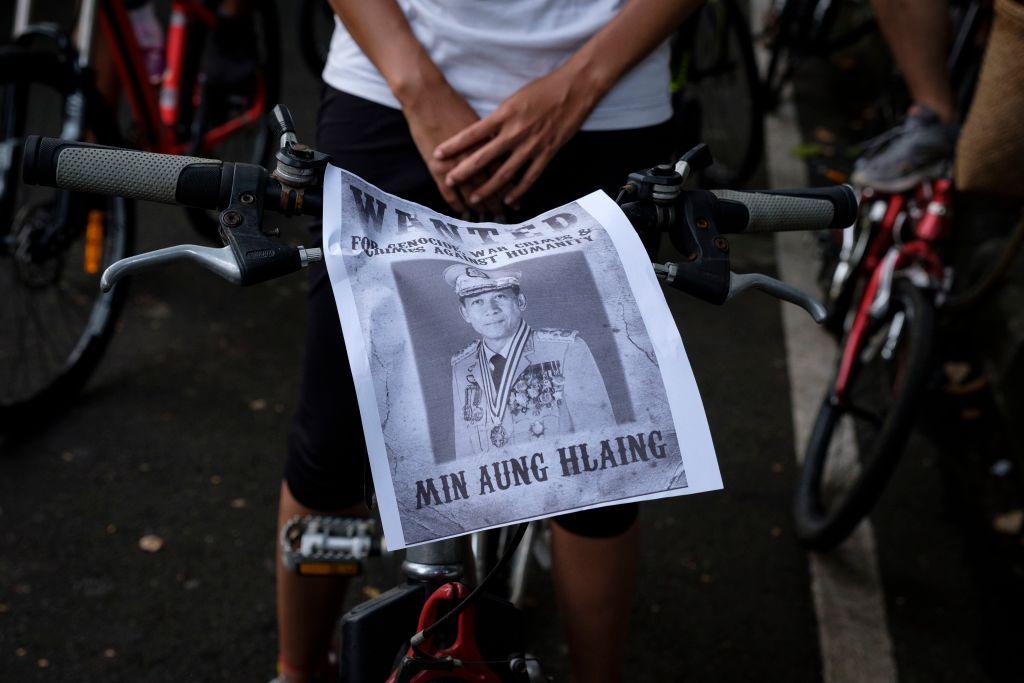
As this year’s ASEAN chair, Brunei Darussalam finds itself operating in an increasingly precarious and unpredictable region.
While Southeast Asia begins to heal from the Covid-19 pandemic that brought the region to a standstill for most of last year, Brunei has the formidable task of guiding it towards a post-recovery era. With the theme of ‘We Care. We Prepare. We Prosper’, Brunei has largely concentrated its chairmanship on strengthening the regional healthcare infrastructure in a post-pandemic landscape.
However, early this year, the ASEAN chair was forced to focus on an entirely unexpected challenge—the military coup and accompanying violence that erupted in Myanmar. Brunei has since become engaged in a series of regional consultations, quiet diplomacy and concerns about major-power intervention amid fears of domestic spillovers and recurring waves of the pandemic.
It now confronts an entirely different set of challenges to those it anticipated.
Last month’s ASEAN Leaders’ Meeting at the organisation’s secretariat in Jakarta became a point of tension. In a bid to de-escalate the crisis, ASEAN invited coup leader Min Aung Hlaing to the meeting but that drew a mixed reaction from civil society groups and Myanmar citizens concerned that the invitation recognised him as his country’s legitimate representative.
The summit produced a joint statement and a five-point consensus through which ASEAN leaders hoped to address the spiralling violence in Myanmar.
In Jakarta, Min Aung Hlaing displayed an apparently conciliatory attitude. He did not reject calls to end the violence and he met with the United Nations Special Envoy for Myanmar Christine Schraner Burgener.
But in Myanmar the bloodshed continues.
ASEAN’s approach has been based on its political desire for cooperation rather than enforcement, so the fact that the five-point consensus offered neither a timeline nor a plan to apply pressure on the coup leaders is not surprising. While Brunei and other ASEAN leaders are still working on nominating a Myanmar envoy, critics believe the summit offered Myanmar’s armed forces, the Tatmadaw, an opportunity to seek legitimacy externally while continuing to repress the people.
The Myanmar crisis is a test that Brunei, and everyone else in the region, were not prepared for. With its ‘We Care. We Prepare. We Prosper’ theme, Brunei sought to protect the ASEAN community by prioritising treatment to ensure swift recovery, expediting vaccine distribution and protecting online services.
This led to the Strategic and Holistic Initiative to Link ASEAN Responses to Emergencies and Disasters (ASEAN SHIELD) and the establishment of a taskforce to preserve digital safety and ensure accurate information flows. A second pillar of this strategy sets out to ensure a stable post-pandemic regional future by managing changing major-power relations and security threats, including spillovers from the instability in Myanmar.
Here, Brunei finds itself upholding priorities it has long championed such as a rules-based architecture and constructive relations between major powers as demonstrated by ASEAN’s first invitation to attend the G7 ministerial meeting with partners such as the United States.
Given changing security dynamics, there’s also a broader push to maintain ASEAN’s relevance, especially with the release of documents such as the ‘ASEAN outlook on the Indo-Pacific’.
In the third pillar, seeking prosperity, Brunei advocates for more opportunities through a people-centred approach that focuses on 10 economic priorities including recovery, digitalisation and sustainability.
This year, the region is likely to see Brunei building on the recently signed Regional Comprehensive Economic Partnership to support more non-tariff measures on trade, revive industry sectors, optimise e-commerce and promote sustainable growth.
By beginning the year with a business advisory council meeting and a retreat for senior economic officials, Brunei clearly seeks to vigorously support a broader multilateral trading and security system. Indeed, since taking the chairmanship, Brunei has engaged with long-standing partners such as the United Kingdom by welcoming Foreign Secretary Dominic Raab to Brunei and supporting the UK’s admission as an ASEAN dialogue partner.
Brunei’s three priorities are clearly complementary and, carried out consistently, would help provide a stable post-pandemic order amid regional challenges.
But with the spotlight on the ongoing instability in Myanmar, the test for Brunei’s chairmanship has largely been framed as its ability to lead an effective regional response to the atrocities there. Crafting a peaceful resolution in Myanmar would not only mark the legacy of Brunei’s 2021 chairmanship but would also form a milestone for ASEAN.
It may be a tall order for this gargantuan task to fall upon the shoulders of Brunei, but this country offers the potential for compassionate leadership that the Myanmar crisis desperately needs.